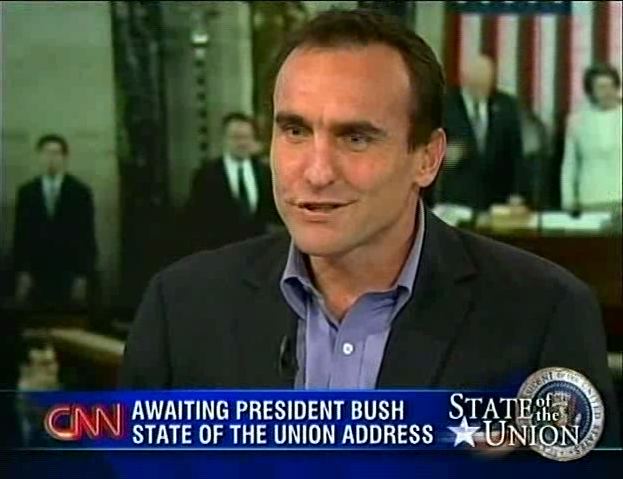SotU pre-speech coverage

Click photo to play
Length: 3:18
WOLF BLITZER: About eight minutes away from when the president will be introduced as he walks into the House of Representatives.
Welcome back to our coverage.
People in Iraq are going to be watching this. They're going to be anxious to hear what the president has to say. And, Paula, we're really fortunate to have one of our best correspondents, Michael Ware. Normally, he's in Baghdad. He's here in THE SITUATION ROOM with us tonight, watching all of this unfold.
Give us your sense, Michael -- this is probably the first time you've been in Washington for a State of the Union address, but for all of us who are interested in what's happening in Iraq, this is going to be potentially critical, this new phase in the war.
MICHAEL WARE, CNN CORRESPONDENT: Absolutely. And it will be interesting to see this evening how the president describes the State of the Union with regard to the war. I mean, what kind of a reference, a frame of reference is he going to give the American people for a strategy that essentially is ailing if not failing, as the poll figures show that the people themselves are aware. America's enemies are becoming stronger, not weaker. How is the president going to address that this evening?
BLITZER: We see all these members already there. They're on the floor of the House of Representatives. This new strategy, so much of it depends on Nouri al-Maliki, the prime minister of Iraq. Can he, will he deliver?
WARE: Well, what's certainly clear is that Nouri al-Maliki is perhaps the only ally the U.S. has in Iraq politically, along with his national security adviser. Yet at the end of the day, their interests -- Nouri al-Maliki's interests and the security adviser's -- don't necessarily align with America's. Their backers are not necessarily America's. So no, you cannot count on Nouri al-Maliki. If that's the exit strategy, then America has a long, long way to go.
PAULA ZAHN: And when you hear a U.S. general say that the situation in Iraq is dire but not hopeless, do you buy that?
WARE: Well, it's certainly dire. In terms of hopeless, right now I see little sign of improvement. The strategy that the president has recently unveiled and has been widely criticized is nothing more than a Band-Aid. And it fails to address the fundamental dynamics that are really driving the many wars of Iraq. It's really just window dressing. And if you want to increase troops, then really increase them. If you want to change strategy, then really change strategy. And the president is doing neither.
BLITZER: Let's go back to Michael Ware for a moment. Michael, Iraq clearly hovering over this speech. I take it you're getting ready to head back?
WARE: Very much so. Back there on the weekend, Wolf. So, Iraq, I think, underwrites this State of the Union. No matter what's happening on the domestic political agenda, it's Iraq that dominates people's minds. Not just in the U.S. We see opinion polls, for example, in Australia showing that Australians are going to be voting according to the war in Iraq.
So very much this hangs over everything at the moment.
And honestly, Iraq is not going well. And in fact, that's a reflection upon the entire global war on terror. President Bush has time and time again put Iraq at the centerpiece of the war on terror. Well, essentially, it's the gaping hole in the president's war.
